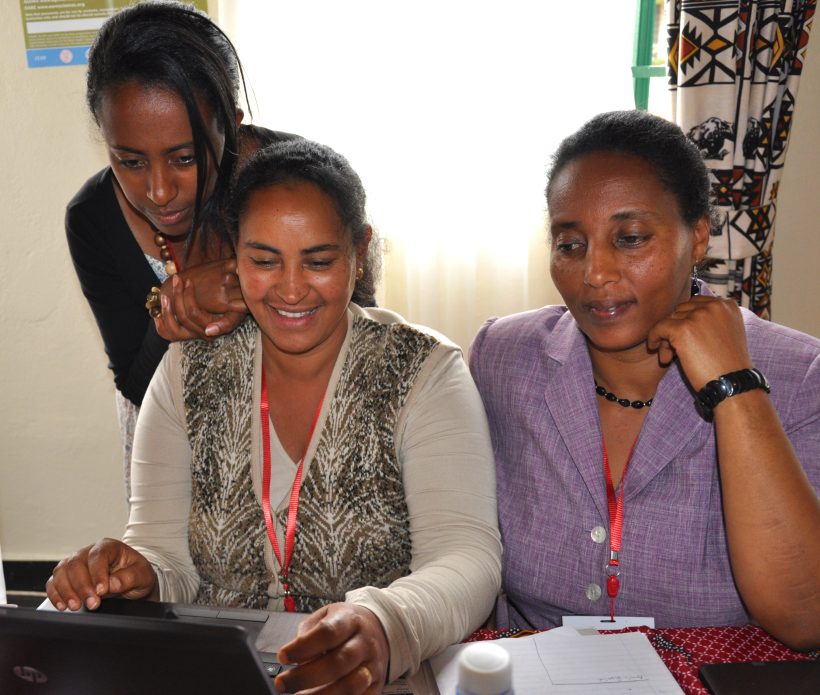
Globally, women account for only 33 percent of researchers, with just 22 percent representation in artificial intelligence. Only one in every three researchers is a woman in the business world, and they receive less research funding than their male counterparts. Yet, Information and Communication Technologies (ICT) have been highlighted to play a considerable role in accelerating actions on the Sustainable Development Goals. The uneven distribution and lack of full participation and leadership of girls and women in technology communities undermine achieving a sustainable and just future.
As we join the world in marking this year’s International Girls in ICT Day, our top 10 curated reads this month recognize the gender gap in ICT globally. These readings spotlight women’s contributions to ICT, their challenges, and the potential women and girls have in revolutionizing the world through ICT. One of the articles highlights three enablers for women to thrive in technical roles.
This review studies present emerging efforts to empower women using ICT. The findings advocate for concerted action by researchers, policymakers, and program implementors to address the gender disparities in ICT. It highlights the lack of understanding of the use of ICTs to empower women.
This article highlights gender diversity in tech statistics and paints a picture of the obstacles women face while trying to find equal footing in IT careers. The article delves into nine aspects of IT that companies need to consider to hire better talent and retain workers.
This study explores the pressures women working in ICT development, research, and innovation face while juggling childcare responsibilities and working in a male-dominated profession. The study demonstrates that inadequate work-life balance is a barrier to women’s career opportunities.
This UNESCO publication sheds light on the role gender-responsive education plays in changing gendered opinions of technology and ensuring equality for women and girls in the ICT sector. The publication also fronts ideas for closing the growing digital skills gender gap in most parts of the world.
Baratang Miya, the founder and head of GirlHype, a non-profit that empowers disadvantaged young women and girls by giving them the skills and power to pursue tech careers, shares her vision for African women and girls in tech and how coding changed her life.
This article sheds light on what leading companies are doing to make career development easier—and fairer—for women in technical roles as they look to increase the representation of women in technical roles.
Talking Tech, a series of intergenerational discussions between women and girls in technology, offers various examples of how women are leading change in ICT and inspiring the next generation. This article celebrates different women and their technology journeys.
This paper uncovers the debates and data around the adverse effects of online work on women’s work-life balance during the digital acceleration period caused by Covid-19.
In this article, Devex spoke with Anita Bhatia, Deputy Director of UN Women, on cyber violence against women and girls, the necessity to get more women and girls connected, and how misinformation impacts women’s lives globally.
For decades, the lack of women in ICT has been debated. This paper identifies potential factors and hurdles for success in recruiting and retaining more women in ICT fields. Gender analysis of the digital economy has been unsystematized and limited and needs to be explored in greater depth.
